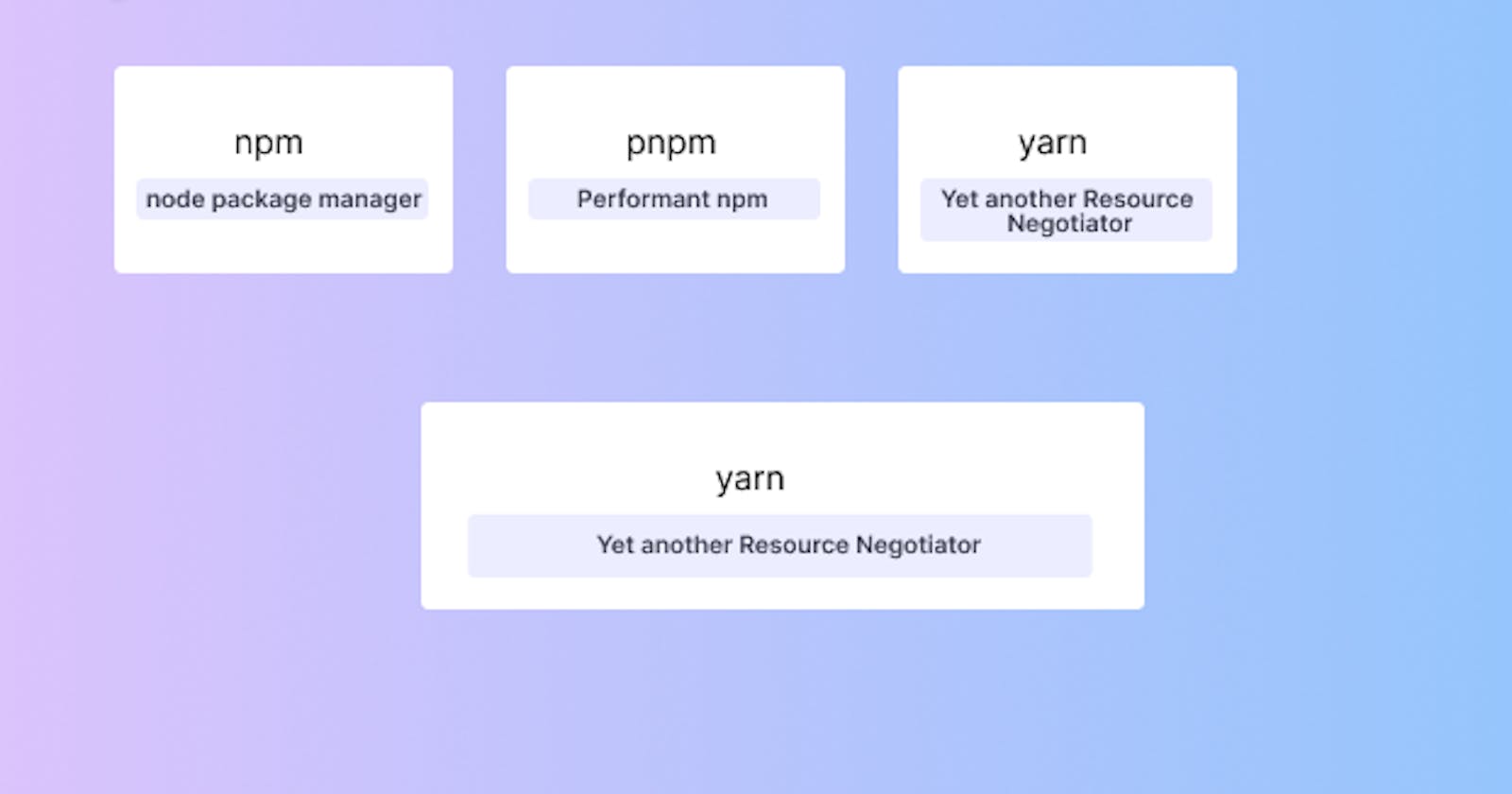In JavaScript development, packages are bundles of code that provide specific functionality or features. The community often shares and maintains these packages, allowing developers to leverage existing solutions and accelerate development.
Package management tools facilitate the installation, versioning, and dependency management of these packages within a project. They streamline the process of integrating external code into projects, ensuring consistency, reliability, and scalability.
By leveraging tools like nx, npx, yarn, npm, and pnpm, developers can streamline workflows, manage dependencies efficiently, and build robust applications with ease. Understanding the nuances and capabilities of each tool empowers developers to make informed decisions and optimize their development processes. Whether it's managing monorepos, executing packages on the fly, or optimizing dependency installation, these tools provide the foundation for seamless JavaScript development.
npx: Execute Packages Without Installation
npx is a utility that comes bundled with npm and allows you to execute packages without installing them globally or locally. It helps streamline the usage of CLI tools and ensures that you're running the latest version of a package.
Usage:
# Run a package directly from the NPM registry
npx create-react-app my-app
# Execute a package from a GitHub repository
npx github:user/repo
# Run a specific version of a package
npx -p node@14 node --version
Configuration:
npx does not require any specific configuration. It automatically resolves and executes packages from the NPM registry or other sources.
Yarn: Fast, Reliable Dependency Management
Yarn is a package manager that prioritizes speed, reliability, and security. It offers deterministic dependency resolution, caching, and parallel installation to optimize the package installation process.
Usage:
# Install dependencies
yarn install
# Add a new package to the project
yarn add package-name
# Run scripts defined in package.json
yarn start
Configuration:
Yarn uses a yarn.lock file to lock dependency versions and ensure reproducible builds. Additional configurations can be specified in the package.json file.
npm
npm (Node Package Manager) is the default package manager for Node.js. It provides a vast repository of packages, along with CLI tools for package installation, versioning, and publishing.
Usage:
# Install dependencies
npm install
# Add a new package to the project
npm install package-name
# Run scripts defined in package.json
npm start
Configuration:
npm utilizes a package.json file to manage project metadata, dependencies, and scripts. Additional configurations can be specified in the package-lock.json file for locking dependency versions.
pnpm: Fast, Disk-Saving Package Manager
pnpm is a package manager that aims to reduce disk space usage and improve installation times by using single storage for multiple versions of dependencies. It achieves this by symlinking packages rather than copying them.
Usage:
# Install dependencies
pnpm install
# Add a new package to the project
pnpm add package-name
# Run scripts defined in package.json
pnpm start
Configuration:
PNPM uses a pnpmfile.js for configuration, allowing fine-grained control over dependency resolution and installation behaviour. Project metadata and configurations are managed using the package.json file.
nx: A Powerful Monorepo Toolkit
nx is a powerful toolkit for building full-stack applications using mono repo architecture. It provides a set of powerful CLI commands and plugins that enhance the development experience for Angular, React, Node.js, and other frameworks.
Usage:
# Create a new NX workspace
npx create-nx-workspace@latest my-workspace
# Generate a new Angular application
nx generate @nrwl/angular:app my-app
# Run tests for all applications in the workspace
nx test
Configuration:
nx workspaces are configured using workspace.json and nx.json files. These files define project settings, dependencies, and workspace structure.

